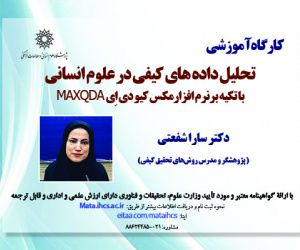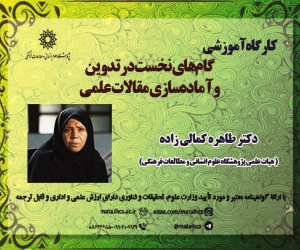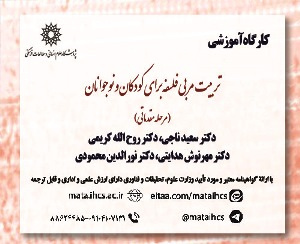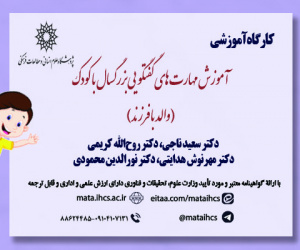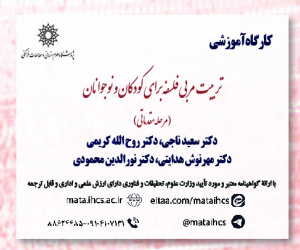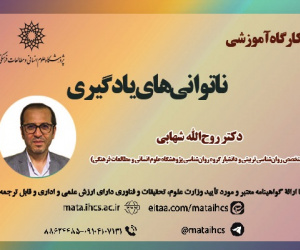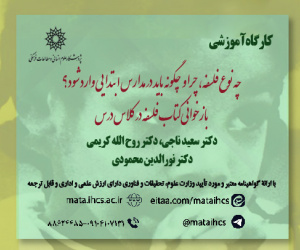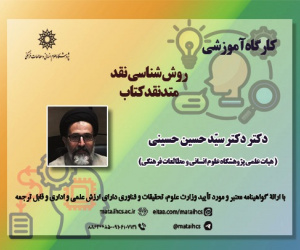بررسی تاثیر شبکه های اجتماعی بر تعارضات تربیتی دانش آموزان (با تاکید بر شبکه اجتماعی تلگرام) (مقاله علمی وزارت علوم)
درجه علمی: نشریه علمی (وزارت علوم)
آرشیو
چکیده
هدف: رفتار والدین درباره نحوه و میزان استفاده از شبکه های اجتماعی فرزندان خود بر تعارضات تربیتی تاثیر می گذارد. هدف این مطالعه، بررسی تاثیر شبکه های اجتماعی بر تعارضات تربیتی دانش آموزان با تاکید بر شبکه اجتماعی تلگرام بود. روش: پژوهش حاضر از نظر هدف، کاربردی و از نظر نحوه گردآوری داده ها، توصیفی از نوع پیمایشی بود. جامعه آماری این مطالعه همه دانش آموزان دوره دوم متوسطه شهر تهران بودند که نمونه ای به حجم 391 نفر از میان آنها به روش نمونه گیری خوشه ای چندمرحله ای انتخاب شد. برای جمع آوری داده ها از ابزارهای محقق ساخته شامل فرم اطلاعات جمعیت شناختی و پرسشنامه شبکه های اجتماعی و تعارضات تربیتی استفاده شد که روایی و پایایی آن مورد تایید قرار گرفت. برای تحلیل داده ها از روش های ضرایب همبستگی پیرسون، تحلیل واریانس و آزمون تعقیبی توکی در نرم افزار SPSS نسخه 23 استفاده شد. یافته ها: نتایج ضرایب همبستگی پیرسون نشان داد که بین استفاده از شبکه های اجتماعی و هر چهار مولفه آن شامل روش های حضور در شبکه اجتماعی تلگرام، هدف حضور در شبکه اجتماعی تلگرام، محدودکردن استفاده از تلگرام توسط والدین و مدت استفاده از تلگرام با تعارضات تربیتی دانش آموزان همبستگی مثبت و معنی دار وجود داشت (001/0P<). همچنین، نتایج تحلیل واریانس نشان داد که روش های حضور در شبکه اجتماعی تلگرام، هدف حضور در شبکه اجتماعی تلگرام و مدت استفاده از تلگرام بر تعارضات تربیتی دانش آموزان تاثیر ندارند (05/0P>)، اما محدودکردن استفاده از تلگرام توسط والدین بر تعارضات تربیتی دانش آموزان تاثیر دارد (05/0P<). علاوه بر آن، نتایج آزمون تعقیبی توکی نشان داد که گروه های عدم محدودکردن استفاده از تلگرام توسط والدین، استفاده با نظارت والدین و استفاده فقط برای درس نسبت به گروه استفاده فقط برای ارتباط همکلاسی ها تعارضات تربیتی کمتری را تجربه کردند (05/0P<). نتیجه گیری: طبق نتایج این مطالعه، استفاده از شبکه های اجتماعی مانند تلگرام بر تعارضات تربیتی دانش آموزان تاثیر می گذارد. بنابراین، برنامه ریزی برای کاهش تعارضات تربیتی دانش آموزان از طریق مدیریت استفاده از شبکه های اجتماعی ضروری استInvestigating the Impact of Social Networks on the Educational Conflicts of Students (With an Emphasis on the Telegram Social Network)
Objective: Parents' behavior about how and amount use of social networks of their children affects educational conflicts. The purpose of this study was to investigate the impact of social networks on the educational conflicts of students, with an emphasis on the Telegram social network. Method: The current research in terms of purpose was applied and in terms of data collection method was descriptive from type of survey. The statistical population of this study was all students of senior high school of Tehran city, which a sample of 391 people was selected from among them whit using a multi-stage cluster sampling method. To collect data were used from researcher-made tools including demographic information form and questionnaire of social networks and educational conflicts, which its validity and reliability were confirmed. For data analysis were used from Pearson's correlation coefficients, analysis of variance and Tukey's post hoc test in SPSS version 23 software. Results: The results of Pearson's correlation coefficients showed that there were a positive and significant correlation between the use of social networks and all four its components including the methods of being on the Telegram social network, purpose of being on the Telegram social network, limiting the use of Telegram by parents and duration use of Telegram with educational conflicts of students (P<0.001). Also, the results of the analysis of variance showed that the methods of being on the Telegram social network, purpose of being on the Telegram social network and duration use of Telegram have no effect on the educational conflicts of students (P>0.05), but limiting the use of Telegram by parents has an effect on the educational conflicts of students (P<0.05). In addition, the results of Tukey's post hoc test showed that the groups of not limiting the use of Telegram by parents, use with parental supervision and use only for lessons in compared to the group of use only for communicating with classmates experienced fewer educational conflicts (P<0.05). Conclusion: According to the results of this study, the use of social networks like Telegram affects the educational conflicts of students. Therefore, it is necessary to plan to reduce the educational conflicts of students by managing the use of social networks.

